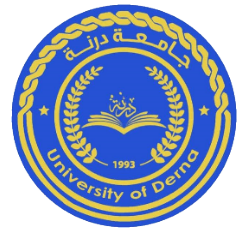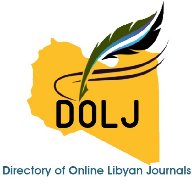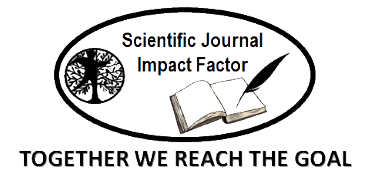أساليب المحاسبة الإدارية البيئية وانعكاسها على تحقيق التنمية المستدامة (دراسة نظرية تحليلية)
الكلمات المفتاحية:
التنمية المستدامة، المحاسبة الإدارية البيئية، محاسبة تكلفة تدفق المواد، بطاقة الأداء المتوازن المستدامالملخص
تهدف الدراسة إلى بيان انعكاس أسلوبي محاسبة تكلفة تدفق المواد وبطاقة الأداء المتوازن المستدام على تحقيق التنمية المستدامة. ولتحقيق هذا الهدف اعتمدت الدراسة على أسلوب المنهج الوصفي التحليلي بالاطلاع على الأدبيات والدراسات السابقة. وتوصلت الدراسة إلى أن استخدام أسلوبي محاسبة تكلفة تدفق المواد وبطاقة الأداء المتوازن المستدام ينعكس إيجاباً على أبعاد التنمية المستدامة الثلاثة: يتحقق البعد الاقتصادي برفع الكفاءة الانتاجية، تخفيض التكلفة، دعم عملية صنع القرار، الاحتفاظ بالعملاء واكتساب عملاء جدد، تعظيم الربحية والقيمة السوقية، والمساهمة في خلق ميزة تنافسية للمؤسسة، في حين أن البعد البيئي يتحقق بالحد والتقليل من النفايات والانبعاثات، ابتكار طرق وأساليب جديدة للحد من الخسائر، زيادة فرص إعادة التدوير، ترشيد المواد الخام والطاقة اللازمة للعملية الانتاجية، وتعزيز الفاعلية البيئية للمؤسسة، وأخيراً البعد الاجتماعي يتحقق من خلال توليد منافع اجتماعية، تعزيز مشاركة العاملين وتطوير كفاءتهم، دعم المسؤولية الاجتماعية، وتحسين صورة المؤسسة أمام المجتمع. أوصت الدراسة بضرورة قيام المؤسسات باعتماد الأساليب الحديثة للمحاسبة الإدارية البيئية وعلى رأسها أسلوبي محاسبة تدفق المواد وبطاقة الأداء المتوازن المستدامة لما لها من دور فعال في رفع كفاءة أداء المؤسسات والاهتمام بالجوانب الاجتماعية والبيئية مما ينعكس إيجاباً على تحقيق التنمية المستدامة، كما أوصت بالاهتمام بتدريس المحاسبة الإدارية البيئية وأساليبها في المناهج الجامعية.
المراجع
المراجع العربية
الأحمد، سعد عدنان أحمد، (2017)، "تقييم الأداء الاستراتيجي من منظور العملاء: دراسة ميدانية على الشركات الصناعية بمحافظة البصرة العراقية"، المجلة العلمية للدراسات التجارية والبيئية، كلية التجارة، جامعة قناة السويس، مج (8)، ع (3)، ص ص.781-806.
بن يمينة، فاطمة الزهراء وبوزيان، عثمان، (2019)،" تقييم الأداء البيئي للمؤسسات من خلال بطاقة الأداء المتوازن"، مجلة البشائر الاقتصادية، مج(5)، ع(2)، ص ص. 643-656.
بوخاري، بولرباح، (2017)، "اقتراح نموذج لقیاس أداء المؤسسات الصغیرة والمتوسطة - حالة المؤسسات الصغیرة والمتوسطة الجزائریة" رسالة دكتوراه. كلیة العلوم الاقتصادیة والتجاریة وعلوم التسییر، جامعة الشلف، الجزائر.
بوطورة، فاطمة الزهراء وسمايلي، نوفل،(2020)،"بطاقة الأداء المتوازن المستدامة نموذج لتقييم استدامة المؤسسة وأدائها البيئي": دراسة حالة مؤسسة الأسمنت- تبسة-، مجلة دراسات وأبحاث المجلة العربية للأبحاث والدراسات في العلوم الإنسانية والاجتماعية، مج(12)، ع(4)، ص ص. 451-.467
بوطورة، فضيلة والوافي، علاء الدين،(2021)،" دور بطاقة الأداء المتوازن المستدامة في تفعيل الإنتاج الأنظف"، مجلة الأصيل للبحوث الاقتصادية والإدارية، مج(5)، ع(2)، ص ص. 178-195.
الجازوي؛ صالح أبوبكر والبرعصي؛ عبدالسلام حسين، (2018)، واقع المحاسبة البيئية والافصاح عن التأثيرات البيئية في الشركات الصناعية الليبية وعلاقتها بتحقيق التنمية المستدامة، المؤتمر العلمي الخامس للبيئة والتنمية المستدامة بالمناطق الجافة وشبه الجافة، 23-25 يوليو، جامعة اجدابيا-ليبيا.
الجبلي؛ وليد سمير عبدالعظيم، (2022)، إطار مقترح للتكامل بين محاسبة تكاليف تدفق المواد لدعم القدرة التنافسية (RCA) ومحاسبة استهلاك الموارد (MFCA) المنشآت الأعمال- دراسة ميدانية، مجلة البحوث المالیة، مج (21)، ع(3)، یولیو، ص ص. 511 -580.
جعدي، شريفة وقماري، مريم، (2021)" دراسة تأثير تبني المسؤولية المجتمعية على أداء شركة الاتصالات باستخدام بطاقة الأداء المتوازن المستدام"، مجلة التنمية الاقتصادية، مج(6)، ع (2)، ص ص. 85-104.
الجوزي؛ جميلة، (2012)، أهمية المحاسبة البيئية في استدامة التنمية، المؤتمر العلمي الدولي حول سلوك المؤسسة الاقتصادية في ظل رهانات التنمية المستدامة والعدالة الاجتماعية، 20 - 21 نوفمبر، جامعة قاصدي مرباح – ورقلة، كلية العلوم الاقتصادية والتجارية وعلوم التسيير، الجزائر.
درغام، ماهر موسى، (2015)، المحاسبة الإدارية البيئية: دليل من فلسطين، سلسلة العلوم الإنسانية، مجلة جامعة الأزهر - غزة، مج (1)، ع ( 5)، ص ص. 27-60.
ذيب، حسين ودادن،عبد الغني،(2021)، "مساهمة بطاقة الأداء المتوازن في تقييم الأجاء الاستراتيجي بمؤسسات صناعة مواد البناء في الجزائر"، مجلة إدارة الأعمال والدراسات الاقتصادية، مج(7)، ع (1)، ص ص. 768-791.
ربحي، فاطمة وزنيني، فريدة،(2022)،"بطاقة الأداء المتوازن كآلية لتقييم الأداء في المؤسسة الاقتصادية"، مجلة المعيار، مج(13)، ع(1)، ص ص.705-730.
ركاب؛ زهرة،ر(2014)، "دور بطاقة لأداء المتوازن المستدام في تفعيل استراتيجية التنمية المستدامة"، رسالة ماجستير، كلية العلوم الاقتصادية والعلوم التجارية وعلوم التسيير، جامعة أم البواقي، الجزائر.
الرياشي، سليمان، (1999)، "دراسات في التنمية العربية الواقع و الآفاق"، مركز دراسات الوحدة العربية، بيروت.
السعدون، هدى مؤید حاتم، (2017)، "استخدام بطاقة الأداء المتوازن في تقویم الأداء الاستراتيجي في جامعة القادسية"، رسالة ماجستير،الديوانية، كلية الإدارة والاقتصاد، جامعة القادسية، العراق.
شاهين، إسلام محمد محمد، (2013)، "التنمية المستدامة ومؤشراتها في مصر: دراسة تحليلية "، المجلة العلمية للبحوث والدراسات التجارية، مج (27)، ع (4)، الجزء الأول ، ص ص. 33-83.
شعلة، حامد عادل عبد الحميد، عبد الرحيم، سامي معروف وسليمان، حسين محمد، (2021)،" أثر استخدام أساليب المحاسبة الإدارية الاستراتيجية على تحقيق الأداء البيئي للمنشأة"، المجلة العلمية للدراسات التجارية والبيئية، كلية التجارة، جامعة قناة السويس، مج (12)، ع (4)، ص ص. 603-623.
عبدالحليم، نادية راضي، (2005)،" دمج مؤشرات الأداء البيئي في بطاقة الأداء المتوازن لتفعيل دور منظمات الأعمال في التنمية المستدامة"، مجلة العلوم الإدارية والاقتصادية، مج (21)، ع (2)، ص ص.1-34.
عريوة، محاد وزغبة، طلال، (2020)، بطاقة الأداء المتوازن المستدام. الطبعة الأولى، (جامعة الدول العربية: دار منشورات المنظمة العربية للتنمية الإدارية).
عريوة، محاد وزغبة، طلال،(2018)،" أهمية تطبيق بطاقة الأداء المتوازن المستدام SBSC في المؤسسات الاقتصادية"، مجلة اقتصاديات المال والأعمال، ع (7)، ص ص. 35-55.
محاد؛ عريوه،(2011)، "دور بطاقة الأداء المتوازن في قياس وتقييم الأداء المستدام بالمؤسسات المتوسطة للصناعات الغذائية"، رسالة ماجستير منشورة، جامعة فرحات عباس سطيف، الجزائر.
الغلبان، ثائر صبري وحسين، نادية شاكر،(2009)،"التكامل بین تقنیتي بطاقة العلامات المتوازنة و المقارنة المرجعیة لأغراض تقویم الأداء الاستراتیجي في الوحدات الاقتصادیة"، مجلة كلیة بغداد للعلوم الاقتصادیة الجامعة، ع (22)، ص ص. 299 -338.
علي، سعيد مدحت سعيد، (2020)، "دراسة تحليلية لدور المحاسبة الإدارية البيئية في خفض المخاطر وانعكاس ذلك على تحقيق ميزة تنافسية مستدامة للمنشآت الصناعية"، المجلة العلمية للدراسات التجارية والبيئية، المجلد (11)، العدد الثالث، الجزء الثالث، يوليو 2020، ص ص. 1505-1537.
الكشر، التهامي عثمان، (2015)، نظرة عامة على مفهوم وممارسات المحاسبة الادارية البيئية، مجلة العلوم الاقتصادية والسياسية، ع(6)، كلية التجارة زليتن، الجامعة الاسمرية الإسلامية، ديسمبر، ص ص. 311-356.
متولي؛ مروى أحمد محسن، (2008)،"مدخل مقترح لتطوير المحاسبة الإدارية البيئية بمنظمات الأعمال لتحقيق أهداف التنمية المستدامة دراسة نظرية تطبيقية، مجلة البحوث المالية والتجارية، ع (1)، كليه التجارة، جامعة بورسعيد، ص ص. 332 – 359.
محمد، ماجدة متولي،(2022)، نموذج لقياس العلاقة بين المحاسبة الإدارية البيئية وتحسين الكفاءة البيئية - دراسة ميدانية، مجلة الفكر المحاسبى، ع (1)، مج (26)، جامعة عين شمس، ص ص .157-208.
المسعودي، هبة نبيل حميد،(2017)،" توظيف المستدام لتقويم الأداء البيئي المتوازن SBSC وTBL "، رسالة ماجستير، كلية الإدارة والاقتصاد، جامعة كربلاء، العراق.
المشهداني؛ عمر إقبال توفيق، الركابي؛ علي خلف، (2011)، دور المحاسبة في المحافظة على البيئة ودعم التنمية المستدامة، مجمع مداخلات الملتقى الدولي الثاني حول الأداء المتميز للمنظمات والحكومات، نمو المؤسسات والاقتصاديات بين تحقيق الأداء المالي وتحديات الأداء البيئي، المنعقد بجامعة ورقلة يومي 22 و 23 نوفمبر.
مصطفى؛ أمل محمد محمد، (2022)،" أثر تطبيق بطاقة الأداء المتوازن على استراتيجية التنمية المستدامة"، المجلة العربية للإدارة، مج (42)، ع (4)، ديسمبر، ص ص.93-112.
ملاك؛ خديجة ودرحمون؛ هلال، (2018)، محاسبة تكاليف تدفق المواد " MFCA " كأداة للرفع من الأدائين "البيئي والاقتصادي"، مجلة الأبحاث الاقتصادية لجامعة البليدة، ع (19)، ديسمبر، ص ص .146-166.
نصير، عبدالناصر عبداللطيف محمد، (2020)، دور مدخل محاسبة تكاليف تدفق المواد في تحقيق الاستدامة للشركات المصرية: دراسة حالة في شركة مصر للأسمنت (قنا)، مجلة البحوث المالية والتجارية، مج (21)، ع (4)، ص ص203- 264.
يوسف؛ محمد يسري، (2019)، دور المحاسبة الادارية البيئية في دعم التنمية المستدامة، مجلة البحوث الإدارية، أكاديمية السادات للعلوم الإدارية مج (36)، ع (3)، يوليو، ص ص. 34-89.
الأمم المتحدة، (1992)، "تقرير الأمم المتحدة المعني بالبيئة والتنمية، إعلان ريو، 1992".
الأمين؛ ماهر وداود؛ ساميا أحمد، (2014)، تأثير ضغط أصحاب المصالح في مستوى تبني ممارسات المحاسبة الإدارية البيئية "دراسة ميدانية على الشركات الصناعية السورية"، مجلة جامعة تشرين للبحوث والدراسات العلمية -سلسلة العلوم الاقتصادية والقانونية، مج(36)، ع (3)، ص ص. 107-125.
الوائلي؛ فاطمه حامد غانم، الموسوي؛ عباس نوار كحيط، (بدون تاريخ)، أهمية تقنيات المحاسبة الإدارية البيئيّة في تحقيق التنمية المستدامة (دراسة نظرية تحليلية)، بحث مستل من رسالة ماجستير، كلية الادارة والاقتصاد، جامعة واسط.
المراجع الاجنبية
Aly, A.H., and Mansour, M. E.,(2017)” Evaluating the sustainable performance of corporate boards: the balanced scorecard approach” Managerial Auditing Journal, Vol.(32), No.(2),pp.167-195.
Burritt, R.L. (2004), Environmental management accounting: Roadblocks on the way to the green and pleasant land, Business, Strategy and the Environment, vol(13),pp. 13-32.
Burritt, R. L., Hahn, T., & Schaltegger, S. (2002). Towards a comprehensive framework for environmental management accounting—Links between business actors and environmental management accounting tools. Australian Accounting Review, Vol. (12), No. (2), pp.39-50.
Chaker, F., Idrissi, M.A, and El Manouar,A., (2017), “A Critical Evaluation of the Sustainability Balanced Scorecard as a Decision Aid Framework”, International Journal of Applied Engineering Research, Vol.(12), No (14), pp.4221-4237.
Chang, S-H.; Chiu, A-A. and Chu, Chin L., (2015), "Material Flow Cost Accounting System for Decision Making: The Case of Taiwan SME in the Metal Processing Industry", Asian Journal of Finance & Accounting, Vol. )7(, No. )1(, pp. 117-134.
Chichan.H.F, mohammed.H.,K, Alabdullah,T.T,(2021), Does Environmental Management Accounting Matter in Promoting Sustainable Development? A Study in Iraq, Journal of accounting Science, Vol (5), Iss (2), July, pp. 101-114.
Christ, Katherine L.; Burritt, Roger L. (2014). Material flow cost accounting: a review and agenda for future research. Journal of Cleaner Production, pp. 1-42, S0959652614009354–. doi:10.1016/j.jclepro.2014.09.00.
Doorasamy, Mishelle, (2014), The Effectiveness of Material Flow Cost Accounting (MFCA) In Identifying Non- product Output Costs And Its Impact On Environmental Performance In Paper Manufacturing Companies: A Case Study In Kwa-Zulu Natal, Journal of Accounting and Management, Vol. (4), No.(3) , pp. 51 - 69.
Hajek, and Hyrslova, Jaroslava and Bendarikova, Marie, (2008), Material flow cost accounting. "Only" a tool of environmental management or a tool for the optimization of corporate production processes, Chemical Technology Journal, Vol.(14), pp. 131 – 145.
IFAC, International Federation of Accounting,(2005) “Environmental Management Accounting” International Guidance Document, New York, USA.
Jasch, C. (2009). Linking physical and monetary information. Environmental and Material Flow Cost Accounting: Principles and Procedures. Springer, pp. 97-129.
Jasch, Christine (2006) “How to perform an environmental management cost assessment in one day”, Journal of Cleaner Production, Volume 14, Issue 14, pp.1194-1213.
Kasemset, Chompoonoot & Chernsupornchai, Jintana & Pala-ud, Wannisa,(2015), Application of MFCA in Waste Reduction: Case Study on a Small Textile Factory in Thailand, Journal of cleaner production, Vol. (108), Part B, pp.1342 - 1351.
Kokubu, K. and Nakajima, M., (2004), Material Flow Cost Accounting in Japan: A New Trend of Environmental Management Accounting Practices, Fourth Asia Pacific Interdisciplinary Research in Accounting Conference, Singapore, pp . 1–16.
Kokubu, katsuhiko & kitada, Hirotsugu, (2015), Material Flow Cost Accounting and Existing Management Perspectives, Journal of cleaner production, Vol.108, Part B, pp.1279 - 1288. https://doi.org/10.1016/j.jclepro.2014.08.037
Kokubu, Katsuhiko; Kitada, Hirotsugu (2014). Material flow cost accounting and existing management perspectives, Journal of Cleaner Production, pp.1-32, S0959652614008609–. doi:10.1016/j.jclepro.2014.08.037.
Mahmoudi, E.; Jodeiri, N. and Fatehifar, E., (2017), "Implementation of Material Flow Cost Accounting for Efficiency Improvement in Wastewater Treatment Unit of Tabriz Oil Refining Company", Journal of Cleaner Production, Vol. (165), p p. 530-536.
Nakajima, M. (2006). The new management accounting field established by Material Flow Cost Accounting (MFCA). Kansai University Review of Business and Commerce, No. 8, pp. 1-22
Onishi, Y., Kokubu, K., and, Nakajima, M. (2008). Implementing material flow cost accounting in a pharmaceutical company. Environmental management accounting for cleaner production, PP. 395-409, Springer, Dordrecht.
Prox, M. (2015) .Material Flow Cost Accounting Extended to the Supply Chain – Challenges, Benefits and Links to Life Cycle Engineering. CIRP conference 29, pp.486 – 491. Available online at: www.sciencedirect.com.
Ramona Rieckhof, Anne Bergmann, Edeltraud Guenther,(2015), “Interrelating Material Flow Cost Accounting with Management Control Systems to Introduce Resource Efficiency into Strategy”, Journal of Cleaner Production,vol.(108), pp 1262-1278 doi: 10.1016/j.jclepro.2014.10.0400.
Sahu, A. K., Padhy, R. K., Das, D., & Gautam, A. (2021). Improving financial and environmental performance through MFCA: A SME case study, Journal of Cleaner Production, 279, 123751.PP.1-19.
Schmidt, Mario & Nakajima, Michiyasu (2013), Material Flow Cost Accounting as an Approach to Improve Resource Efficiency in Manufacturing Companies, Resources, Vol.( 2), pp. 358 – 369.
Sygulla, R & Bierer, A & Götze, U, (2011), Material Flow Cost Accounting – Proposals for Improving the Evaluation of Monetary Effects of Resource Saving Process Designs. In: Proceedings of the 44th CIRP Conference on Manufacturing Systems, 1-3 June 2011, Madison, Wisconsin, USA:
Tiwari, P.,and Panicker, S., (2017). "Sustainability Balanced Scorecard as a Framework for Performance Measurement in Facility Management - A Literature Review” Pacific Business Review International ,Vol. (10), No. (1), pp. 121-127.
UNDSD . "Environmental Management Accounting: Procedures and Principles",(2001), United Nations Division for Sustainable Development, New York.
Wagner B, (2015),A report on the origins of MFCA research activities, Journal of Cleaner Production, pp. 1255-1261, Doi: 10.1016/j.jclepro.2015.10.020
Wahyuni, Dina, Environmental Management Accounting: Techniques and Benefits (Juni 2009). Jurnal Akuntansi Universitas Jember, Vol. 7, No. 1, pp. 23-35, Available at SSRN: https://ssrn.com/abstract=1511390.
WCED World Commission on Environment and Development (1987), Our common future, Oxford University.
Zhang,B and Jiana Liu., J,(2015), Empirical Study on MFCA Introduced in Sekisui Chemical Group and its Enlightenment, International Conference on Advances in Energy and Environmental Science (ICAEES 2015), PP. 1456-1460.
Misra, Atulya; Panchabikesan, Karthik; Ayyasamy, Elayaperumal and Ramalingam, Velraj, (2017), "stainability and Environmental Management: Emissions Accounting for Ports", Strategic Planning for Energy and the Environment, Vol. (37), Issue (1), May 2017, pp. 8-26.



























